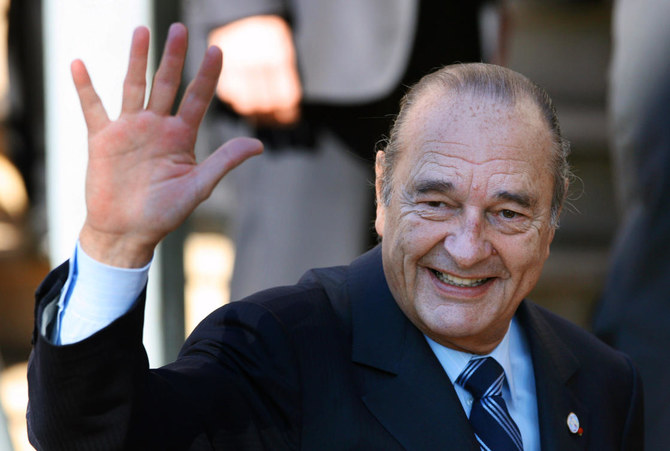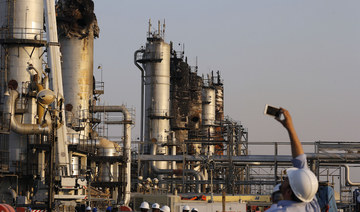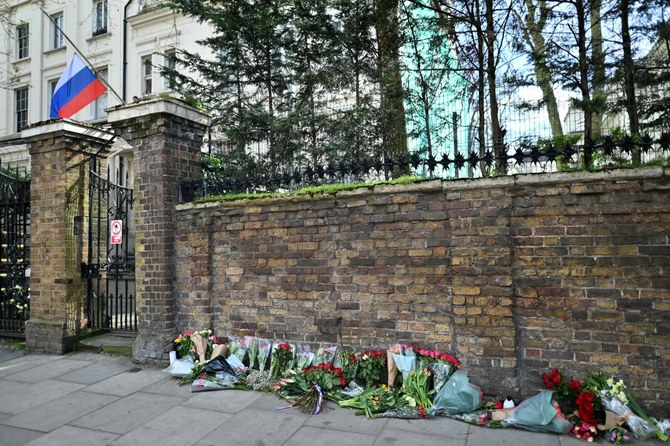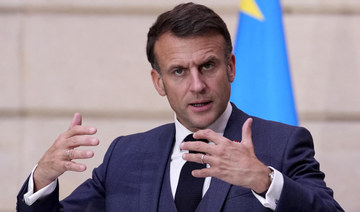PARIS: Two-term French president Jacques Chirac died Thursday at the age of 86 after a long battle with ill-health, his family said, leading to tributes from across the political spectrum for a statesman who famously said “non” to the 2003 Iraq war.
The center-right Chirac, acknowledged even by foes as a supreme political fighter, rose to prominence as mayor of Paris before becoming prime minister and then serving as head of state from 1995 to 2007.
Former opponents and supporters hailed his common touch and enduring popularity, while world leaders including German Chancellor Angela Merkel and Russian President Vladimir Putin acclaimed his service to France.
“He incarnated a France that was true to its universal values and to its historic role,” said former president and one-time protege Nicolas Sarkozy, who added that “a part of my life has disappeared today.”
His time at the Elysee Palace saw France adopt the euro single currency and, in a landmark moment for relations with Washington, loudly oppose the US-led invasion of Iraq in 2003.
This infuriated US president George W. Bush and British prime minister Tony Blair, who pushed the invasion. But Blair hailed Chirac on Thursday as “a towering figure in French and European politics over many decades.”
His death was announced by his son-in-law Frederic Salat-Baroux who told AFP he had passed away on Thursday morning at his home in Paris “surrounded by his family, peacefully.”
He is expected to be given a state funeral.
The news led to intense discussion about Chirac’s legacy to France, with commentators united in admiration of his wily political skills and homely style, but divided on what he achieved.
As a student he had been a Communist party activist and as a right-leaning politician he was known for his ideological flexibility, with economic policies that fluctuated — as did his views on European integration.
While he was hailed for standing up to the far-right — he defeated National Front presidential candidate Jean-Marie Le Pen in 2002 — he was also capable of fueling France’s deep-rooted racial tensions.
“Having Spaniards, Poles and Portuguese people working here creates fewer problems than having Muslims and blacks,” he said in a speech in 1991.
His legacy is also overshadowed by a conviction for graft dating to his time as mayor of Paris.
After losing his presidential immunity, he become the first former head of state to go on trial in 2011 and was given a suspended jail term.
“He’s someone with a mixed record,” political historian and author Jean Garrigues told AFP, adding that there was “a large reserve of goodwill toward him from the French people.”
The charmer, whose extramarital affairs were an open secret, had barely been seen in public in recent years. He suffered a stroke in 2005 and underwent kidney surgery in December 2013.
Chirac’s 12 years in the Elysee Palace in two mandates made him France’s second longest-serving postwar president after his Socialist predecessor Francois Mitterrand.
“Jacques Chirac is part of the history of France,” said parliament speaker Richard Ferrand from the centrist party of President Emmanuel Macron as he announced Chirac’s passing to parliament.
Both chambers — the lower House National Assembly and the upper house Senate — observed a minute of silence after the news was announced.
Macron canceled a planned trip to the south of France to discuss his pension reform and will address the nation at 8:00 p.m. (1800 GMT), his office said.
Macron’s Socialist predecessor Francois Hollande praised Chirac as a “fighter” who had “known how to establish a personal link with the French.”
Chirac also served two stints as prime minister, in 1974-76 and 1986-88, and was mayor of his native Paris from 1977-1995.
Jean-Claude Juncker, European Commission chief and former Luxembourg premier, was “moved and devastated” to learn of Chirac’s death, a spokeswoman said, adding that Europe was losing a “great statesman.”
Putin heaped praise on Chirac as a “wise and far-sighted statesman” and also singled out “his intellect and huge knowledge,” the Kremlin said.
Lebanon’s prime minister called him one of “France’s greatest men” and a “spiritual twin” of his late father. “Today, the world lost one of France’s greatest men,” Saad Hariri said.
“He held Lebanon’s hand during its toughest times and was always at the forefront when it came to defending the country’s freedom, sovereignty and independence,” he added.
Merkel said he was “an outstanding partner and friend to us Germans” while British Prime Minister Boris Johnson said Chirac had “shaped the destiny of his nation.”
It was Chirac’s time at the helm of the French capital that resulted in his conviction in December 2011 for embezzlement and misuse of public funds.
He contested the ruling but did not appeal it, saying the French people “know who I am: an honest man” who worked only for “the grandeur of France and for peace.”
A politician with a popular touch who loved the company of farmers, Chirac also deployed his charm and acid tongue on supporters and foes.
Caught on an open mix discussing Britain with his German and Russian counterparts in 2005, he was famously overheard saying that “one cannot trust people whose cuisine is so bad.”
Despite his long marriage to Bernadette, he was also famed for his dalliances with other women which were an open secret to many.
He said just before leaving office: “There have been women I have loved a lot, as discreetly as possible.”























